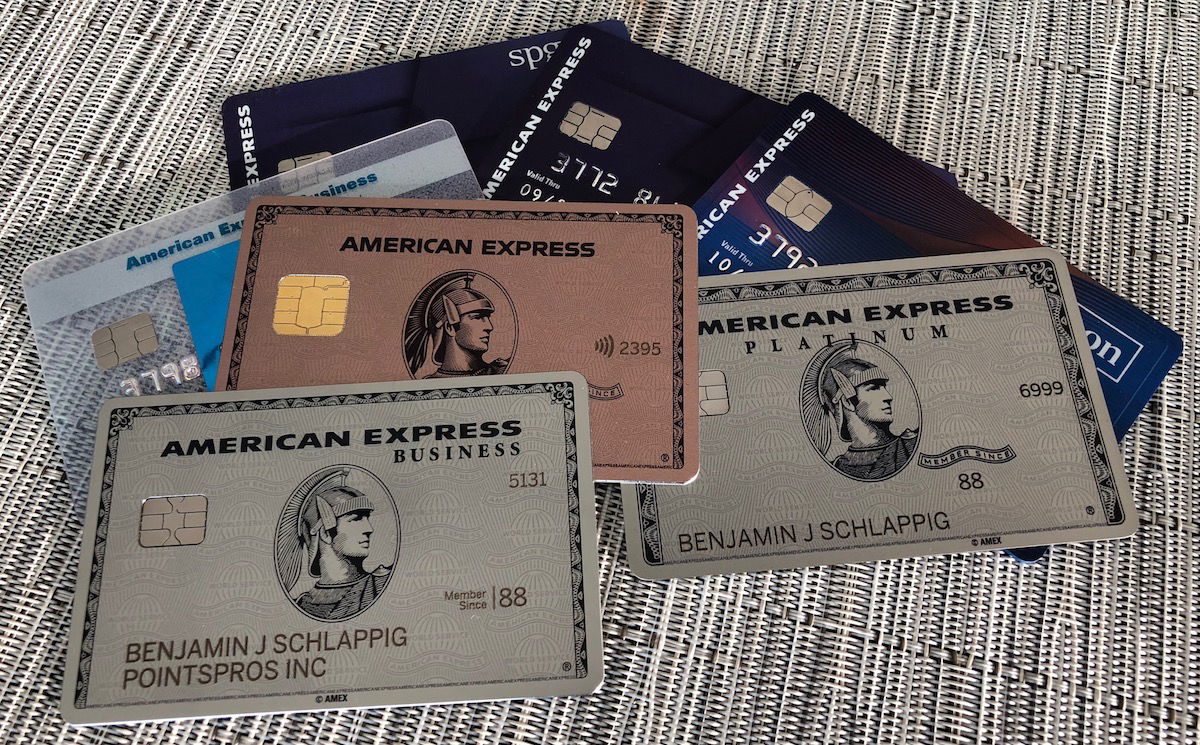Credit card rewards are the key to unlocking amazing travel experiences, between huge credit card welcome bonuses, and valuable card perks. I know that applying for credit cards when you’re in college can be daunting (goodness, I graduated from college over 10 years ago… time flies).
It can be frustrating to get started applying for credit cards. Banks want to issue cards to people they know are credit-worthy, but how can you prove you’re credit-worthy when banks won’t give you a chance? While it can be a bit of a process, there is a method to establishing your creditworthiness and maintaining a great credit score, and it’s probably not as hard as you think, though it does take patience.
While it has been a long time since I started my credit journey, at this point I have a near perfect credit score and have over two dozen credit cards, so it definitely worked out in the end. In this post I wanted to provide some tips for college students wanting to apply for credit cards.
Only apply for credit cards if you can do so responsibly
I think this is an important point to make before I say anything else. You should only apply for credit cards if you know you can pay off your balance in full each billing cycle and use cards responsibly.
If you pay off your credit card balance in full each billing cycle, you shouldn’t have any interest charges. Meanwhile if you end up spending more and have to finance charges, you could be paying a lot in interest, negating the rewards you earn.
Everyone has to know their level of self restraint, and it’s not worth paying financing charges or getting into debt in the name of credit card rewards. So if you don’t think you can use credit cards responsibly, stop reading now!

Apply for a college credit card first
Chances are that the credit card offers for 50,000+ points are the ones that have you salivating, though realistically you probably won’t be approved for those off the bat.
Instead consider a college credit card. These are cards that likely won’t have much of a sign-up bonus, won’t have an amazing rewards structure, and won’t give you a huge credit line. But they’ll get you started on the right path, and set you up for credit success in the future.
There are tons of these kinds of cards out there — one good option is the Chase Freedom ® Student Credit Card. The card has no annual fee, offers a $50 bonus after making your first purchase within three months, offers 1% cash back, and offers a $20 good standing reward (receive that after each account anniversary year for the first five years).
Understand what impacts your credit score
Your credit score is made up of the following factors:
- 35% of your score is your payment history
- 30% of your score is your credit utilization
- 15% of your score is your credit history
- 10% of your score is the types of credit you use
- 10% of your score is your requests for new credit
As you can see, your overall utilization and payment history make up a big portion (65%) of your credit score. Those are things you can very easily manage. Always, always, always pay your bills on-time. Set your payment date for a day of the month you’ll remember. Set a reminder in your phone, calendar, etc. You don’t want to miss your payment deadline.

Keep your credit utilization low
I feel like this is something that’s specifically worth emphasizing as well, in addition to the above explanation of what goes into your credit score. Always keep your credit utilization low, as this can greatly impact your credit score. Let me explain in the form of an example.
If you get a college credit card, chances are that your credit limit will be pretty low. So let’s say it’s $1,000.
If you spend $900 on the card each month, you’re utilizing 90% of your credit. That looks bad to the banks, since they’re saying “hmmm, they’re already almost maxing out their credit, and it could be risky to give them more credit.”
Conversely, say you have 10 credit cards with a $10,000 credit line each. That’s $100,000 in available credit.
If you spend $1,000 per month on your credit card, that’s a utilization rate of 1%. Counterintuitive as it may seem, having such low utilization makes the banks more likely to give you more cards, since they view you as low risk. The logic is “they have a lot of credit and they’re using it responsibly, so we can give them more.”
This can be a huge factor in improving your credit score and determining your credit worthiness, so there are two tips I have:
- Pay off most of your bill before the statement even closes; your utilization is typically measured when your statement closes, so by paying early you can lower your reported utilization rate
- Try to keep your utilization rate below 40%, if possible; in other words, if your credit line is $1,000, try to utilize no more than $400 of that revolving line
Check your credit score
If you’re brand new to credit cards, pick up a single college credit card and spend on it for at least six months. This way you’ll have a good record of payments for several cycles.
At that point I’d recommend checking your credit score and seeing what it looks like. There are plenty of free services out there for checking your credit scores. Before you even consider applying for more cards, make sure your score is at least 700, and ideally over 720 (give or take). If you’re not at that point yet, just keep exhibiting good behavior on your college credit card.
Know which credit cards to apply for first
Once you’re ready to apply for the lucrative cards, there’s a method to how you’ll want to apply. This is entirely anecdotal, since it really does vary by consumer. In general I find that for those with limited credit history are much more likely to be approved for a card with American Express than a card with Capital One, Chase or Citi.
So when you’re ready to apply for a “real” credit card, I’d recommend starting with American Express. That was the first non-college card I ever got approved for, and I know many others are in the same boat.

Don’t get discouraged if you’re denied for a card
After you have a college credit card, I know it can be intimidating to apply for your first “major” credit card. Hopefully you get approved, but if you don’t, it really isn’t a big deal. The cops aren’t going to knock on your door, and for that matter the impacts shouldn’t be huge.
Being denied for a credit card shouldn’t hurt your credit score much — the only negative to that is an inquiry on your credit report, and that doesn’t have major implications. There will be a much bigger positive impact when you’re actually approved for a card and your total available credit increases, you show good behavior with your on-time payments, etc.
Don’t cancel your college credit card right away
If you do get approved for a premium credit card, don’t immediately cancel the college credit card you had, even though it may not be that rewarding. One aspect of your credit score is your average age of accounts, so you’ll want to hold onto the card you’ve had the longest for as long as possible. That will help balance out your age of accounts if you were to apply for new cards.
It’s a marathon, not a race
Using credit cards properly can be extremely rewarding. But know that it’s a marathon and not a race. If you’re a college student you probably won’t be successful in applying for a dozen lucrative credit cards tomorrow.
Instead just exhibit good behavior and start slow at first, and long term you’ll likely be very successful. Just keep that in mind, so look at the big picture rather than your progress in a given week or month.
As long as you pay your bills on time and don’t utilize too much of your credit, you’re setting yourself up for success.

Bottom line
Getting approved for your first credit card as a college student can be intimidating, though there’s a right way to go about it. I’d recommend getting a student credit card first (like the Chase Freedom ® Student Credit Card), and making sure you don’t utilize too much credit and make your payments on-time.
Then eventually apply for an Amex card, since I find they’re easiest to be approved for. No matter what you decide to do, make sure you take your time and remember that a good credit score (and maximizing rewards) is a long game.
Anyone have any other tips they’ve found useful in getting college students approved for credit cards?
Read More:How To Get Approved For Credit Cards As A College Student
2022-05-26 07:33:36
